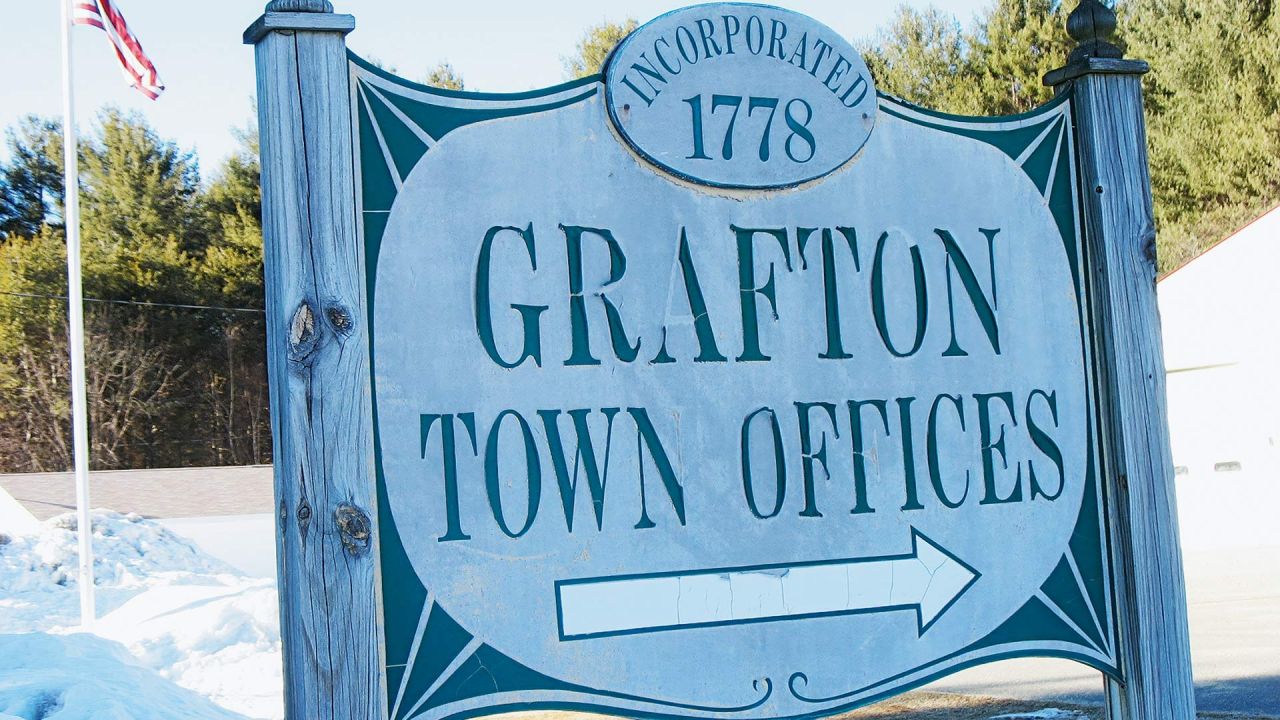Captain Red Eye
Well-known member
Heh heh... When reality copies the literature of the stories-fables of Augusto Monterroso, and persists in dismantling the lies of ultra-neoliberal capitalism aka "pseudo Anarcho"-Capitalism...
View attachment 19127422
Grafton:
The "libertarian" experiment in a small town in the United States that ended in a great fiasco :
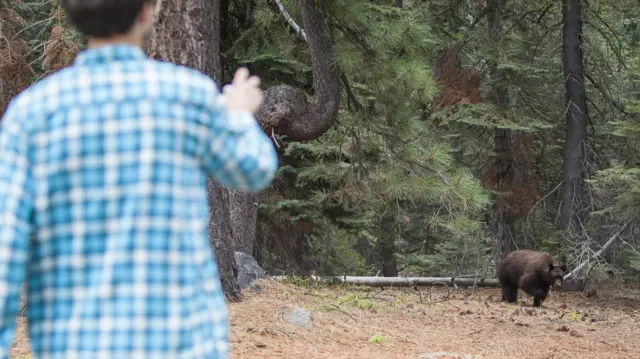
Image source,Getty Images
Photo caption,Libertarians' attempts to test their ideas in a small town ended in a run-in with bears.
Article information :
“Everything in excess is bad.” :
- Author,Juan Francisco Alonso
- Author's title,BBC News World
- August 29, 2023
This oft-quoted maxim seems to apply not only to issues related to medicine, but also to freedom.
And proof of this is Grafton, a small town in the northeastern United States, which at the beginning of the century was the scene of an unprecedented political experiment :
A group of libertarians settled there and put their ideas into practice, cutting regulations and taxes in order to prove that government intervention is oppressive and produces poverty, while if society is left to its own devices it flourishes and is capable of self-regulation.
However, within a few years, the town in the state of New Hampshire, bordering Canada, became known for the drastic deterioration of its public services, the increase in criminal violence; and above all for a series of unusual attacks by black bears against some of its residents.
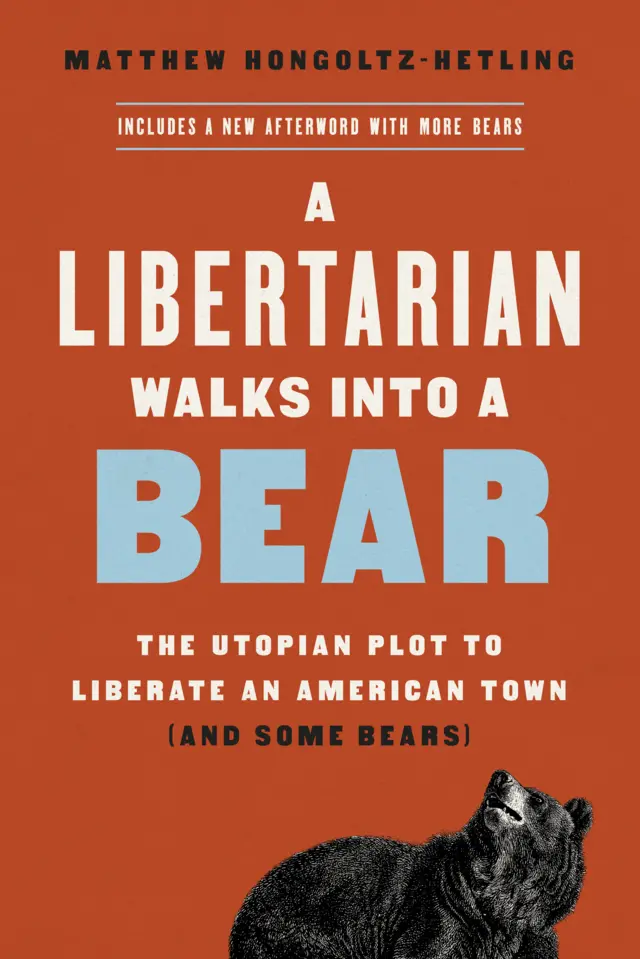
Image source,Courtesy of Matthew Hongoltz-Hetling
Photo caption,The Grafton case eventually caught the attention of journalist Matthew Hongoltz-Hetling, who wrote a book about it.
A unique experiment :
“In 2004, hundreds of people moved to Grafton to found what they called the Free Town Project and demonstrate the feasibility of libertarianism by creating a utopian community,” American journalist Matthew Hongoltz-Hetling explained to BBC Mundo. In 2020, he wrote the book A Libertarian Walks into a Bear , in which he recounted what happened in the small town.
Libertarianism is a political-philosophical movement that places “individual freedom as the supreme political value” and considers that every person has the right to live his or her life and do with his or her body and property whatever he or she considers appropriate, as long as it does not interfere with the rights of others to do the same, explained Venezuelan political scientist Luis Salamanca.
“For classical liberalism, the State must be minimal; that is, it accepts that the State exists, but only as a watchdog of productive activity and a minimal regulator. However, for anarcho-capitalists, who are the purest and most radical libertarians, this is oppression. For anarcho- capitalists, the State is the enemy and must be liquidated ,” added the former director of the Institute of Political Studies of the Central University of Venezuela (UCV).
Libertarianism has had a strong hold in the United States since its founding. "The best government is that which governs least ," said Thomas Jefferson, one of the signers of the Declaration of Independence and third president of that country, recalled the professor of Political Theory and American History Eric-Clifford Graf.
The expert also highlighted that there have been - and are - sectors and individuals within the Republican Party who defend these ideas.
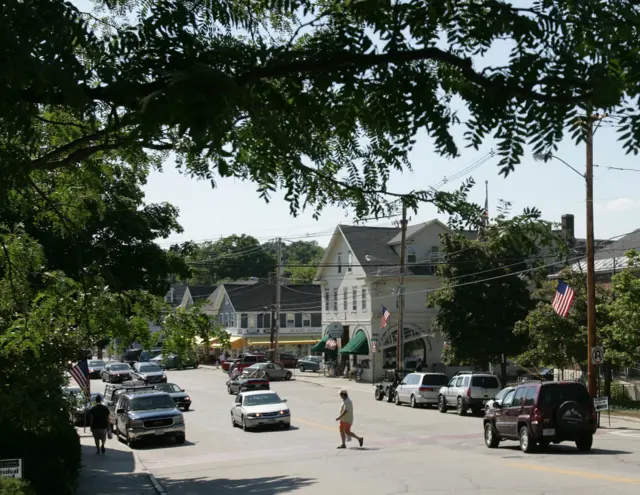
Image source,Getty Images
Photo caption,Grafton, unlike other neighboring towns, began to have problems with garbage collection, street repairs and street lighting.
But why Grafton? “ Libertarians looked at dozens of towns in New Hampshire before settling on Grafton , but it was appealing for several reasons: It was home to a libertarian named John Babiarz, who was running for governor. It also had a small population, about 1,000 people, which meant that a relatively small number of libertarian voters could wield an outsize influence when it came to passing municipal ordinances and taxes,” the journalist listed.
“And finally, Grafton had a deep history of rebellion against authority . In the late 18th century, it voted to secede from the newly formed United States over tax issues, and many of its residents were fiscally disobedient (not paying taxes),” he concluded.
Hongoltz-Hetling, in her book, claimed that within months some 200 libertarians, most of whom had met online, had moved to the town to launch their experiment.
The new residents were mostly white, single men who supported gun ownership .
However, from an economic point of view, the profile of the newcomers was more varied: some had a lot of money and others were poor and had nothing to tie them to their places of origin.
The latter explains why the number of people living in mobile homes or tents in the forests surrounding the town has increased significantly.

Image source,Getty Images
Photo caption,Libertarians' refusal to use trash bins against bears and some of their decision to feed them attracted the animals to residential areas.
A not so silent invasion :
The new “Graftonians” soon began to make themselves felt. “They were very active and involved in the local political process, which allowed them to impose many of their ideas on the community,” Hongoltz-Hetling said.
And though they failed in their attempts to remove the town from the School District, the authority in charge of overseeing schools, or to declare the town a “United Nations-free zone,” they did convince residents to cut the already small municipal budget , which was just US$1.3 million, by 30% .
However, the promise that the cuts would result in lower taxes and more money in the pockets of the population did not come to pass.
For example, in Canaan, a neighboring town, residents paid only 70 cents more in taxes on average than those in Grafton and had paved and lighted streets and roads.
By 2011, Grafton's roads were riddled with potholes, street lighting and garbage collection services had all but disappeared, the public library had to reduce its hours to just three hours a day, and police surveillance was reduced because the police only had the resources to pay one full-time officer (the chief commissioner).
Reduced patrols, coupled with the arrival of more armed residents convinced they had the right to do whatever they wanted, explain why the town recorded its first two murders in recent times in the past decade and a 12% rise in the number of violent crimes, according to regional statistics.

Image source,Getty Images
Photo caption,Libertarianism is deeply rooted in the US and was advocated by some of its founding fathers, such as Thomas Jefferson.
Like something out of a bad comedy :
But as if worse roads and more crime weren't enough, Grafton residents had to deal with a problem not seen in a century: a wave of bear attacks .
It was precisely the attacks by these animals that made Hongoltz-Hetling focus her attention on the town, where she found that the mix of deregulation, tax cuts and libertarian ideas resulted in a dangerous cocktail.
“Many of the libertarians living in the woods did not follow recommendations about waste disposal, which created an easy food source for the bears. Secondly, some of the libertarians began feeding the bears, just as others feed birds or squirrels in their backyards , which attracted the animals to residential areas,” he said.
“And third, the city refused to call on regional authorities to consider killing or relocating the troublesome beasts; instead, individuals tried to deter them, in ways that were ineffective (using fireworks). Over time, the bears became bolder and more interested in humans as a food source and even stopped hibernating,” he said.

Image source,Getty Images
Photo caption,Bears began roaming the streets of Grafton and attacked two residents in 2012, an occurrence not seen in a century.
By 2016 the experiment had foundered and many of the libertarians who had settled in Grafton had left.
However, little has been done to repair the damage , Hongoltz-Hetling said.
“The town budget has not grown to make up for the lost years and municipal services remain poor compared to those in other neighbouring towns. However, the atmosphere is calmer than before, and there have been no more bear attacks, so perhaps that is a victory,” the journalist said.
But how could a group of newcomers virtually control a town and dismantle it without anyone taking action? “ The libertarians acted within the rule of law , so there was no reason for state or federal authorities to intervene,” he replied.
" The Grafton fiasco was partly the result of a fair democratic process , in which community-minded residents did not organize as effectively as libertarians.
"For me, libertarians have moral, but not legal, responsibility for what happened to the people who were attacked by the bears," the journalist and author added.

Image source,Getty Images
Photo caption,The victory of economist Javier Milei, who presents himself as a libertarian, in the Argentine primaries has put this ideology at the forefront of the debate.
A theory in vogue :
The victory of economist Javier Milei in Argentina's mandatory primary elections on August 13 has put libertarianism in the spotlight.
" I consider the state to be an enemy ; taxes are a burden on slavery," said the controversial candidate, who, according to polls, has the best chance of winning the presidential elections next October.
Milei has declared himself a “libertarian” and an “anarcho-capitalist” and has promised that, if he wins the elections, he will “blow up” the Central Bank, reduce the number of ministries and legalize the carrying of firearms.
However, what happened in Grafton raises more than reasonable doubts as to whether libertarianism can be successfully implemented .
"The experiment allowed us to see the benefits, but above all the problems that come with doing without the State," said political scientist Salamanca.
“ Garbage is the most pathetic example and shows that you cannot leave everything to the market . The market can regulate prices, but there are other aspects of human life that it does not cover and that is where the anarcho-capitalist model fails,” he said.
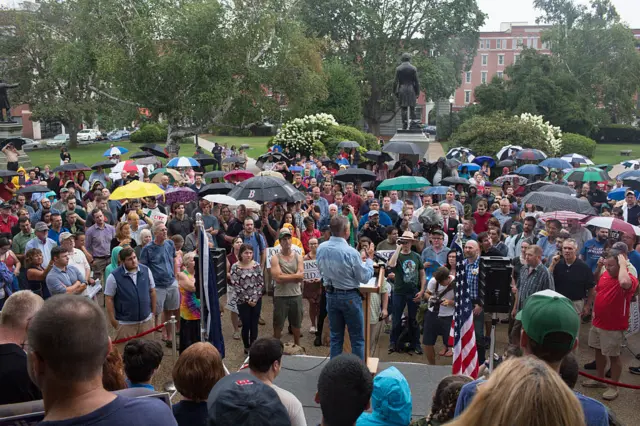
Image source,Getty Images
Photo caption,Despite Grafton's failure, libertarianism has support among a portion of the electorate and the Libertarian Party will once again participate in the 2024 US presidential election.
“In Grafton, freedom was prioritized over order, but total freedom leads to the loss of order, and where there is no order, force and the law of the strongest prevail,” said the expert.
Salamanca recalled that the history of humanity before the modern State was incredibly chaotic and violent.
"Anyone could invade your home, take your wife or kill you (…) The conclusion that this case draws is that freedom alone, without order, ends up being negative for itself and that the weakest end up being harmed," he said.
Professor Graf, for his part, admitted that libertarian ideals are inspiring and can be very attractive to electorates disenchanted with traditional politicians.
However, the expert warned that handing power over to the followers of this political movement "is to risk chaos and anarchy, which can return us to tyranny . "
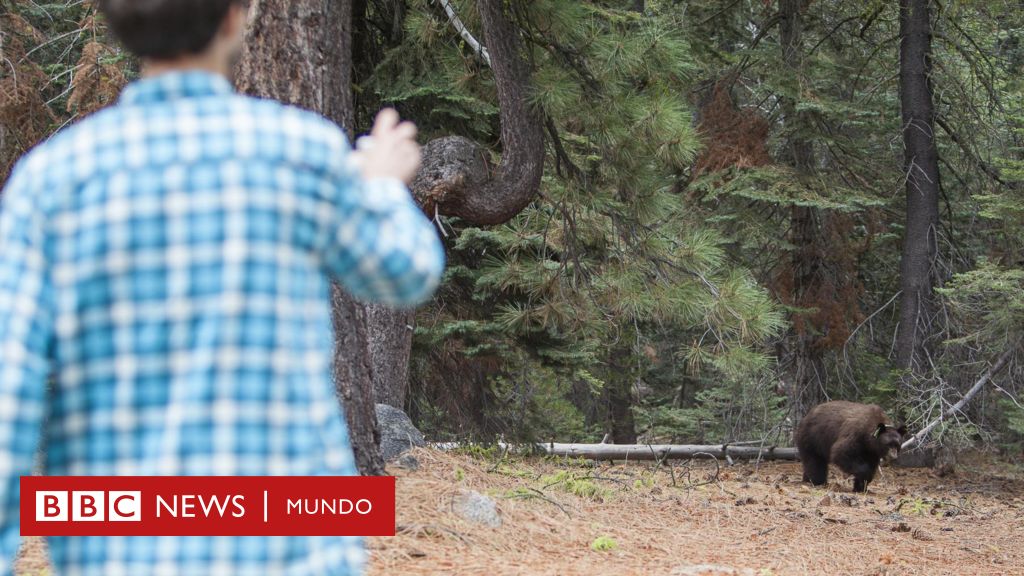
Libertarios | Grafton: el experimento "anarco-capitalista" en un pueblo de Estados Unidos que terminó en un gran fiasco - BBC News Mundo
La reducción del presupuesto municipal y la derogación de un conjunto de normas provocó una notable desmejora en los servicios públicos, un aumento de la violencia y la llegada de unos agresivos osos.www.bbc.com
Don't believe everything you read.
The picture in the article about the town of Grafton, isn't even the town of Grafton, NH. It's a different town, in the County of Grafton. Too funny.
I don't think the person that made the comments about Grafton, NH has any first hand information on what happened or didn't happen in Grafton, NH. and wrote a hit piece.
I actually know the former fire chief John B. and he ran the fire department for years without ANY salary. by his choice. That saved tax payers money.
I'm not going to bother to refute much of what was said in the article, but it has a distinct smell of bullshit for the purposes of furthering an agenda and not to report the truth. Not surprised.
Also, if any Libertarians did use the political system to get taxes lowered "democratically" does that mean you only like the results of democracy when it delivers what you like? That's pretty hypocritical.

